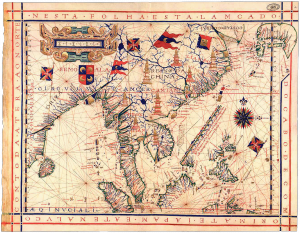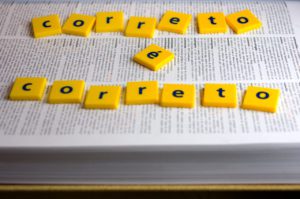‘Another language is another view of life’ (Frederico Fellini)
More than 7000 languages are spoken today. Calculating the part that a language plays in the world is not an easy task. One of the possible ways to calculate the number of speakers is to consider how many people use a language as their mother tongue.

Following this criterion, Mandarin (Chinese) leads the world ranking, followed by Spanish, English, Hindi, Bengali and Portuguese according to data from Ethnologue, a reference that provides detailed information about world languages.
If we count not only the first language but also the second language of the speakers of a given country, Portuguese falls from the 6th to the 7th place, according to the same source.

The first Portuguese text dates from the 17th of June, 1214 and concerns the will of the third King of Portugal, Don Afonso II. Before that time, people always wrote in Latin. Due to the discoveries in the late 14th and early 15th century and the colonial conquests, Portuguese is now spoken on four continents.

The Camões Institute of Cooperation and Language calculated that in eight of the nine Community of Portuguese Speaking Countries (CPLP) – Angola, Brazil, Cabo Verde, Guinea-Bissau, Mozambique, Portugal, Sao Tomé and Príncipe, East Timor – Portuguese is the official language and spoken by more than 240 million people. There is no data available for Equatorial Guinea.
In addition to the nine CPLP countries, Portuguese is also the official language in Macau – one of China’s special administrative regions since 1999, the other being Hong Kong – but it is estimated that less than 1% of the population uses it as their mother language.

Brazil – a country with 213 million speakers – is by far the largest territory where Portuguese is spoken and within it the many variations that the Brazilian-Portuguese carries. A language in which there are at least three names for the staple food cassava: aipim, mandioca or macaxeira.
The introduction of the Portuguese language in Brazil was fast. In less than two centuries it became the official language of national understanding – after a decree of the Marquis de Pombal in 1758 – overlapping the approximately 1500 indigenous languages that were spoken when the colonizer arrived.

Since the second half of the 17th century in the islands of Curaçao, Aruba and Bonaire (Dutch Caribbean) Papiamento is spoken. A creole language containing a considerable lexical collection of Portuguese origin, mixed with Dutch and Venezuelan Spanish. It has official language status along with Dutch in the Netherlands Antilles.

Most linguists now believe that Papiamento emerged from the Portuguese-based Creole languages of the West African coast as it has similarities with Cape Verdean and Guinea-Bissau Creole.
Enjoy the week (of the Portuguese language) Approveite a semana


 Het Portugees van Brazilië wijkt af van het Portugees in Portugal. Op initiatief van Brazilië heeft in 1990 een spellingshervorming plaatsgevonden, waarin alle Portugees-sprekende landen afgesproken hebben om de taal overal hetzelfde te spellen.
Het Portugees van Brazilië wijkt af van het Portugees in Portugal. Op initiatief van Brazilië heeft in 1990 een spellingshervorming plaatsgevonden, waarin alle Portugees-sprekende landen afgesproken hebben om de taal overal hetzelfde te spellen.